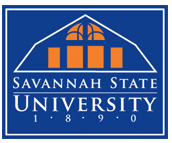 Historically Black Savannah State University in Georgia has entered into an agreement with Augusta Technical College. The agreement will allow Augusta Technical College students to finish their electronics engineering technology degree at Savannah State University.
Historically Black Savannah State University in Georgia has entered into an agreement with Augusta Technical College. The agreement will allow Augusta Technical College students to finish their electronics engineering technology degree at Savannah State University.
The agreement, which goes into effect at the beginning of the 2022-2023 academic year, is between the university’s College of Science and Technology and the department of engineering technology, with Augusta Tech’s School of Aviation, Industrial, and Engineering Technology and the department of electrical and computer engineering technology.
 “There is a big demand for graduates of electronics engineering technology programs. Partnering with Augusta Technical College creates a steady pipeline of students who have the requisite talent and skills to be successful in SSU’s electronic engineering program, which aids in the ultimate goal of preparing a skilled and educated workforce,” said Kimberly Ballard-Washington, president of Savannah State University.
“There is a big demand for graduates of electronics engineering technology programs. Partnering with Augusta Technical College creates a steady pipeline of students who have the requisite talent and skills to be successful in SSU’s electronic engineering program, which aids in the ultimate goal of preparing a skilled and educated workforce,” said Kimberly Ballard-Washington, president of Savannah State University.
Augusta Technical College enrolls more than 3,800 students and African Americans make up 46 percent of the student body,
Savannah State University and the South University School of Pharmacy in Savannah have partnered to introduce a “3+3 Program,” offering Savannah State students an expedited pathway to earn a doctor of pharmacy degree. The program allows students to earn a dual degree that when completed will result in a bachelor’s degree from Savannah State and a PharmD degree from the South University School of Pharmacy.
 “In what would normally be a biology major’s fourth year of undergraduate school, these students will start their first year of pharmacy school,” said Teresa Shakespeare, associate professor and interim chair of the biology department at Savannah State. “Some of the coursework earned during the students’ first year of pharmacy school is credited back to SSU for their undergraduate degree. The 3+3 Program expedites the degree pathway and gives the students early engagement in their career path, and mentorship for pharmacy school enrollment and workforce readiness.”
“In what would normally be a biology major’s fourth year of undergraduate school, these students will start their first year of pharmacy school,” said Teresa Shakespeare, associate professor and interim chair of the biology department at Savannah State. “Some of the coursework earned during the students’ first year of pharmacy school is credited back to SSU for their undergraduate degree. The 3+3 Program expedites the degree pathway and gives the students early engagement in their career path, and mentorship for pharmacy school enrollment and workforce readiness.”












